Mar 13, 2009
Welcome to the fourth installment of our mini-series on transatlantic blogs. Today with the first blog we introduce that is written in the U.S.: Dialog International by David Vickrey. He covers a vast scope of transatlantic topics—from literature and culture, over history, to politics and economics. His analysis is always on point and he continues to surprise with his in-depth knowledge of German affairs.
His first entry from July 2004 pretty much sums up his motivation: “This blog serves to support dialogue about culture and politics, with a special emphasis on repairing German-American relations.”
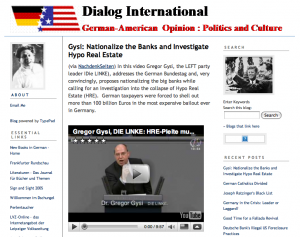 [Read more]
[Read more]
Feb 27, 2009
Welcome to part two of our mini-series on transatlantic blogs. Although, Atlantic Community defies this category. It’s a network, think tank, public publishing system and arena for debate—all at once. Come to think of it, it is a blog, just supercharged by the ideas and opinions of its hundreds of members.
It was founded by the Atlantische Initiative in 2007, and is an excellent starting point to explore global issues and politics on a broad scale. David Lebhar was so nice to answer our set of questions on behalf of the Atlantic Community editorial team.
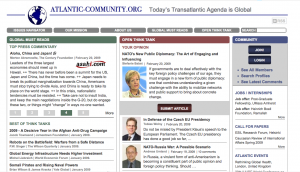
[Read more]
Feb 23, 2009

The Trouble with Bubbles
When Alan Greenspan, former Federal Reserve Chair and longtime icon of the free market, testified last October before the House Oversight Committee on the current financial crisis, he did something that he had not done much very much in his 18 glorious years as the head of the Fed: say “Oops.”
The 82-year-old acknowledged that he had made a mistake in believing that the nation’s banks, operating in their own self-interest, would adequately protect their shareholders and avoid unreasonable risks in the financial markets. Such economic decision-making, made possible through lax regulation and low interest rates that Mr. Greenspan once endorsed but is now shying away from, was, as he put it, “a flaw in the model that defines how the world works.” Indeed, Mr. Greenspan’s world doesn’t seem to be making much sense as it once did. [Read more]
Feb 23, 2009

As a vehicle for pro-life propaganda, Juno is a Trojan horse. It won over liberal hearts, and somehow managed to smuggle in its conservative baggage. It is not, as accommodating film critic Roger Ebert suggested, a masterpiece. The only thing it does masterfully is conceal it’s fundamentalism from moderate audiences. For that, it deserves recognition.
[Read more]
Feb 22, 2009

One of the greatest dangers facing American democracy today is extreme partisanship. The division of public and politics along party lines hinders political discourse and halts social progress at great costs to society. If little else, Americans can agree on that. But, as soon as you ask who is responsible for political bipolarity, people are divided: Fox News or the liberal media, fundamentalist evangelicals or the eastcoast elite, rich republicans or wealthy democrats, SUV drivers or treehuggers.
“Split: A Divided America” is a documentary that shines a light on the roots and consequences of this political divide. While it can’t solve all the problems and leaves the viewer with open questions, there are still some insights to be drawn from it.
[Read more]
Feb 16, 2009
Meet Bernd Mützelburg. There is a 100% chance you’ve never heard of him. But today, Germany’s Foreign Minister Frank-Walter Steinmeier appointed him to be special envoy to Afghanistan and Pakistan.
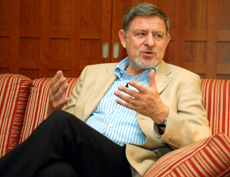
[Read more]
Feb 4, 2009
Virtually all university students know about the pains of procrastinating. Why start with the assignment right now instead of in a couple of minutes? Nonetheless, we do it all the time and get ourselves in considerable trouble most of the time. Suddenly, time is short and deadlines approach sooner than we anticipated. Sounds familiar?
There is help to make the right decision. One solution is to pledge to deliver your next paper on time. If you fail, you will donate a significant sum to charity. In this scenario, the short-term incentives to keep delaying are contrasted with the somewhat clearer long-term consequences of loosing money. The question remains—why do we fail to make the right choice so often, and how can we improve?
[Read more]
Feb 1, 2009
“These people” are Guantanamo inmates, and Berlin’s Senator for the Interior, Ehrhart Körting, is not a fan. They went to Afghanistan believing it to be the promised land, the Social Democratic Senator told the Frankfurter Allgemeine Sonntagszeitung, at a time when the stoning of women was a common occurrence. “It speaks volumes as to mindset of these people, even if you can’t proof they’ve engaged in terrorist activities.” Körting added himself to a growing list of German politicians who debated whether to admit some of the soon to be released Gitmo detainees into Germany.
[Read more]
Jan 23, 2009
If it wasn’t shiningly clear before, being in the midst of the streets of Washington DC on Inauguration Day firmly established one thing: Barack Obama has become a cult personality and, as a consequence, the world’s hottest commercial brand.
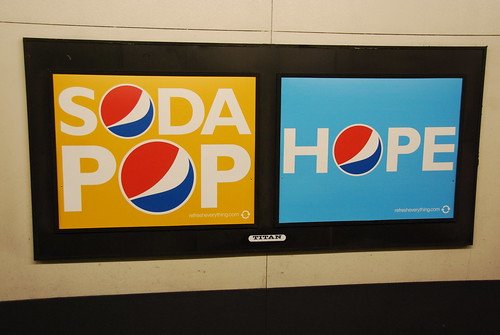
[Read more]
Jan 21, 2009
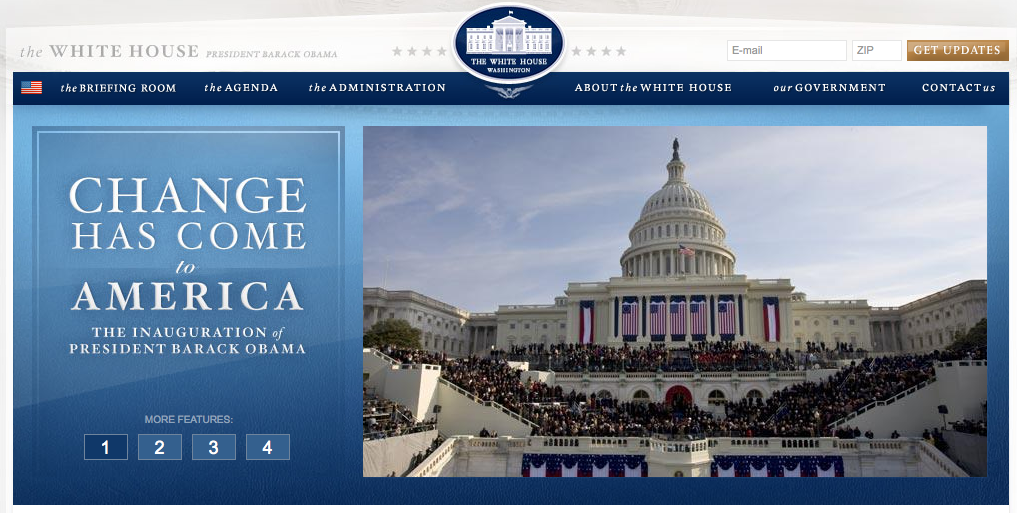
It took the new media team of now finally President Barack Obama only minutes to move into their new virtual home—www.whitehouse.gov. While the new President was still delivering his Inaugural adress, his web2.0 workers already published the first new post on the President’s official domain. [Read more]









